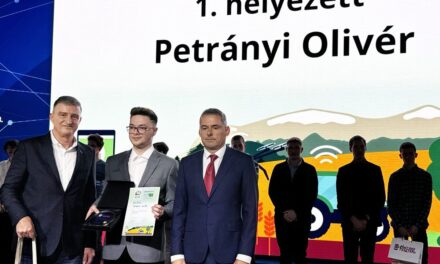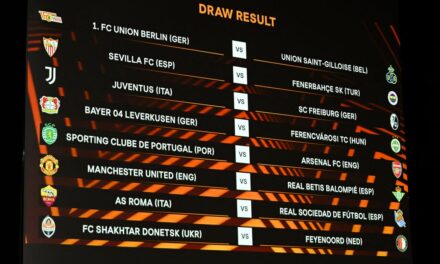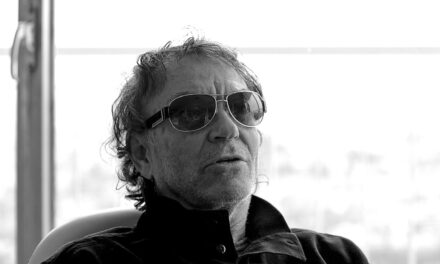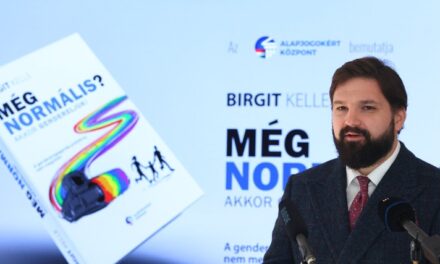The historian Zsuzsanna Borvendég's series was originally published on the PestiSrácok website, but there are certainly those who missed it. But those who haven't read all the parts should also read it again. Knowing the whole picture, can we understand how we got here?
Norbert Siklósi , the media czar of the Kádár system, were the Soviet and domestic secret services, the Prague-based KGB mafia under the pseudonym of the International Journalists' Organization (NÚSZ), and of course the Hungarian party elite. In addition to the press world and the secret services, he had an extensive network of contacts in criminal circles, which he used to convert his political and relationship capital into a predatory privatization advantage as he approached system change.
Chiribú-chiribá: private capital from public wealth
I have come to know that the managers of the subsidiaries and certain units of our company have tried or are trying to steal state (corporate) assets - usually by involving foreign capital. The most common types of offenses are:
– creation of limited liability companies or other corporate forms by bringing in corporate real estate as a contribution;
- the involvement of private individuals - most often foreigners - in these;
- free disposal of other company assets.
These deals seriously harm the interests of the state, company and employees, as well as the prestige and moral credit of the company's management. I took action against the perpetrators of the already discovered illegalities and ordered an investigation. In order to prevent further illegalities, I took the necessary measures with the competent bodies. I would like to note that, at my request, without my approval, the Company Courts will not take substantive action in matters concerning Pallas. I would also like to draw the attention of the heads of the units to the fact that their intention to create new corporate forms affecting the assets of Pallas must be submitted to me for prior approval. If I experience circumvention of this, or if any act of misappropriation of assets comes to my attention, I will immediately initiate criminal proceedings in addition to imposing the most severe disciplinary penalty.
These sentences can be read in the general manager's instructions of the first man of the Pallas Lap- and Könyvkiadó, Jenók Németh, from April 1990. At that time, the looting of Pallas's assets and the expropriation of its subsidiaries, i.e., predatory privatization, were already in full swing. The main gangster was, of course, Norbert Siklósi , about whom we have already read so much in this series in recent months.

Writer Tamás Ungvári, János Fenyő, President and CEO of VICO Rt., and Minister of the Interior Gábor Kuncze talk at the fifth public and political event called Media Boat '95. MTI Photo: Attila Kovács
Cradle of mafia wars
Siklósi was the general secretary of MÚOSZ (and treasurer of NÚSZ) until 1973, when he moved to the position of CEO of Lapkiadó Vállalat, later Pallas. Under his management, Pallas developed into a real giga-company, and in the mid-eighties, he was one of the first to establish companies operating on a market basis. The Magyar Média Reklám és Propaganda Subsidiary probably does not need to be introduced to the regular readers of the Network column, since it was the company that organized the first beauty pageant of socialist Hungary in 1985. An extremely dark shadow hangs over the history of the Magyar Media company, as not only Csilla Molnár , the beauty queen, is on their minds, but also several figures who later became protagonists of the mafia wars of the nineties appeared for the first time - for example, János Fenyő.
The fallen spy
So far, few documents from the period of free robbery dubbed spontaneous privatization have been unearthed among the Pallas documents, but we know that the three subsidiaries founded in the mid-eighties – Magyar Média, Delta Szaklapkiadó és Műszaki Szolgáltató Lányvallalat, and Interedition Foreign Language Magazine Publishing Subsidiary – are important played a role in all of this. All three companies were owned by Pallas, so Norbert Siklósi was naturally involved in their management, and there is no question that each company provided cover for various secret service games. The director of Delta Szaklapkiadó Ferenc Budai , who was previously the MNVK-2. served as his officer, and he also belonged to the foreign trade mafia. In the mid-sixties, he headed the trade office in Milan as a covert intelligence officer. In 1966, he was involved in a scandal and fell, and the Italian authorities arrested him. The diplomatic complication was finally resolved when the Hungarian authorities detained the director of the Italian Cultural Institute in Budapest and then exchanged the two prisoners.

Csilla Andrea Molnár, winner of the Beautiful Hungary competition. MTI Photo: Imre Benkő
His career in Buda did not come to a halt even after the unpleasant case. For a while, he managed the affairs of Siklósi and Interpress Vállalat from the Tourist Office, and after serving in Syria, he was entrusted with the management of the military residency there. his colleague, István Práczki , he did business unscrupulously: he cheated during commercial transactions, stole the budget and committed other financial frauds. appointed Norbert Siklósi , who also has a background in MNVK-2 In April 1990, however, he also had to leave the newspaper, because Jenő Németh wanted to prevent the withdrawal of money from all suspicious subsidiaries. (Based on the existing documents, we cannot confidently say whether all this was successful.) In any case, he removed Budai from the head of the company, and merged Delta into the Interedition Foreign Language Magazine and Publishing Subsidiary.
Metalimpex investigation: BM and MNVK-2. his first open clash
The history of the Interedition is perhaps even more complex than that of the Delta. The Interedition Foreign Language Periodical Publishing Subsidiary was established in the fall of 1987, among its managers authorized to sign the company, in addition to Siklósi, we find Ferenc Griga , the MNVK-2. winner, that is, the interest of military intelligence can also be found in the background of this company. Ferenc Griga's career is adventurous in itself. A few months earlier, you could already read about the arrest of the deputy CEO of Metalimpex. István Dévai was a pawn on the chessboard of the outsourcing mafia, so when a series of frauds using Metalimpex came to light in 1974, he was the one who took the trouble. Everyone else involved was then rescued from the clutches of the investigators, including Ferenc Griga .
In the mid-seventies, Griga was an advisor to the trade office in Baghdad - of course, MNVK-2. as the winner. He returned permanently from his station in May 1974, and received the - usual according to the procedure of the time - discount of being able to bring a truckload of cargo across the border duty-free without inspection. The official request concerned the delivery of building materials, as Griga had just built a semi-detached house in Buda together with Dévai. MNVK-2. supported the foreign trader's request, as he was satisfied with his operative work. The truck did arrive, but in addition to construction materials, it also contained a large amount of other items, which Griga called MNVK-2. smuggled in for his high-ranking officers. Of course, the military secret service did not allow its leaders to suffer, so the state security conducting the investigation was forced to turn a blind eye to the contraband.
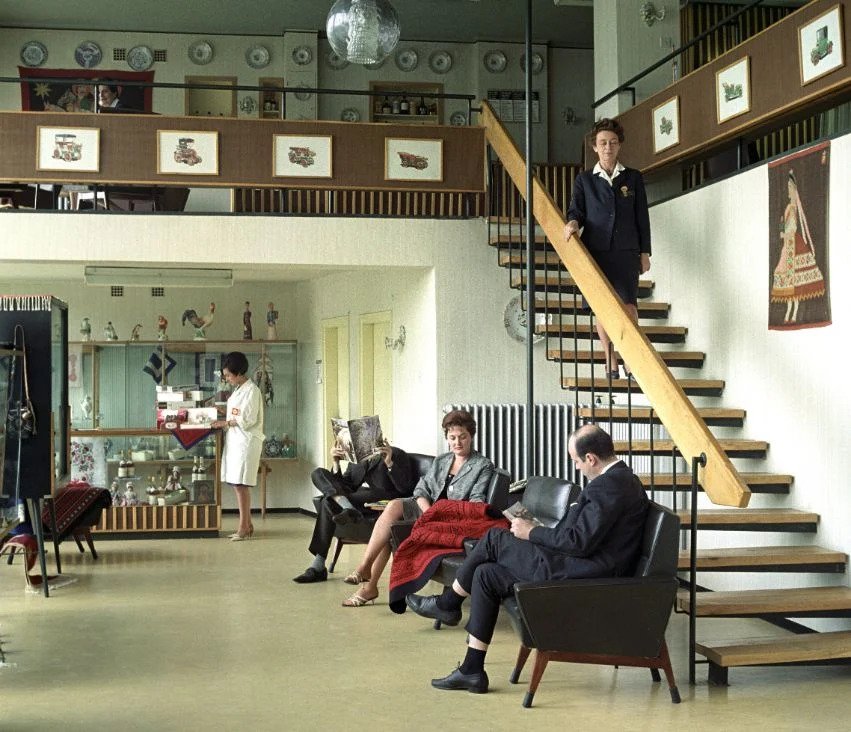
A little, not a little, capitalism in socialist Hungary. Customers are waiting at the car service of the Dutch-English oil company Shell (Royal Dutch Shell) at the Touring Service and fuel filling station at the intersection of Mészáros utca and Zsolt utca, in a recording made for KONSUMEX Külkerkesdelmi Vállalat. The service operates within the framework of the foreign trade company Interag Rt. The agency company, which represents 43 companies from ten Western countries in Hungary - including Shell, Semperit, Mannesmann, Pittler, BMW - carries out market research, propaganda, and service for commissions and other fees to its foreign clients. MTI Photo: Róbert Horling
From Interag to Novotrade
So it was possible to keep Griga away from the Dévai trial; after his assignment in Baghdad, he joined Interag, where he continued to work as deputy head of department. (You have already read about the founder of Interag before: he was László Gerő , one of the most unscrupulous financiers of socialist Hungary.) Griga therefore represented Interag as a successful businessman, and in the early eighties he worked as an employee of Novotrade, the first joint-stock company of socialist Hungary. (Novotrade was not an ordinary company either, but you can read about that in a later article.) According to the recollections of his former colleagues, Ferenc Griga was a well-educated, talented trader with a great understanding of his profession.
MNVK-2. his documents cannot yet be searched, so we cannot know whether in the eighties Griga was still active or no longer had an official connection with the intelligence service, in any case, the state security watched his movements suspiciously even then. Representing Novotrade, he often visited the United States, where perhaps the company's most important partner, Sandy Brown - originally known as Sándor Braun - was the brother of Lajos Bakos Brown was related to one of Novotrade's software developers, so he agreed to help the Hungarian company circumvent the strict embargo rules. Gábor Rényi , the first man of Novotrade, gave the information to the state security that Griga had a good personal relationship with Brown, whom Hungarian intelligence suspected of being hostile to intelligence agencies - CIA? Do you wash? - may be related , of course they could not prove all this. The intertwining threads are already quite complicated, especially when we know the tragic ending of the story.
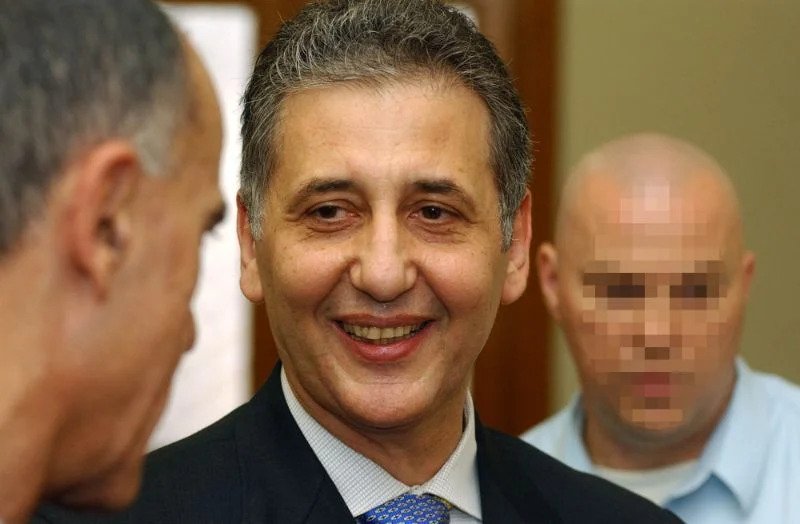
Péter Tasnádi talks with one of his lawyers, Berta József, at the hearing held at the Capital Court before the trial. Péter Tasnádi, who is serving his prison sentence, sued the Capital Correctional Institution because he does not receive kosher food according to his religion. MTI Photo: Barnabás Honéczy
Brutal murder, death-defying Hollywood
Griga's son, Ferenc Griga Jr., emigrated to the United States sometime in the years before the regime change, and according to press reports, he soon became a millionaire by starting a sex phone service. We are not in a position to judge the veracity of everything, in any case, he and his lover were brutally murdered in the early nineties. According to official reports, they were victims of robbery-murder, but the methods are more reminiscent of secret service or organized crime. At least the American press started speculating at the time as to what might have actually happened. Who knows if the network saved from the days of the party state, the past, could have haunted their fate? In any case, Hollywood's imagination was moved by the high-profile crime and a film was made about what happened. A disgraceful, Bumford film comedy. (I don't want to advertise the "work", so I won't describe its title. Anyone who is interested can look it up.) The family did not settle for mocking the tragedy and filed a lawsuit against the makers of the film, which, as far as I know, they won.
The network did live on
The third member of Interedition's management is dr. Péter Márai was a lawyer. Their name should not come to mind Sándor Márai, but Péter Tasnádi, referred to as the first Hungarian godfather . Tasnádi, who was himself an employee of the Lapkiadó Vállalat, that is, the Siklósi empire, from the end of the seventies. Péter Márai was brought to court as the sixth defendant in the Tasnádi trial, which took place at the beginning of the 2000s; it was then that his name became known to the general newspaper reading public.
And we have only listed the managers exercising ownership rights of Interedition. Their system of relationships creates a whole small organized criminal background, which also includes the state security agencies and the underworld figures they support.
Source: PestiSrácok
Author: historian Zsuzsanna Borvendég
(Header image: Fortepan)


